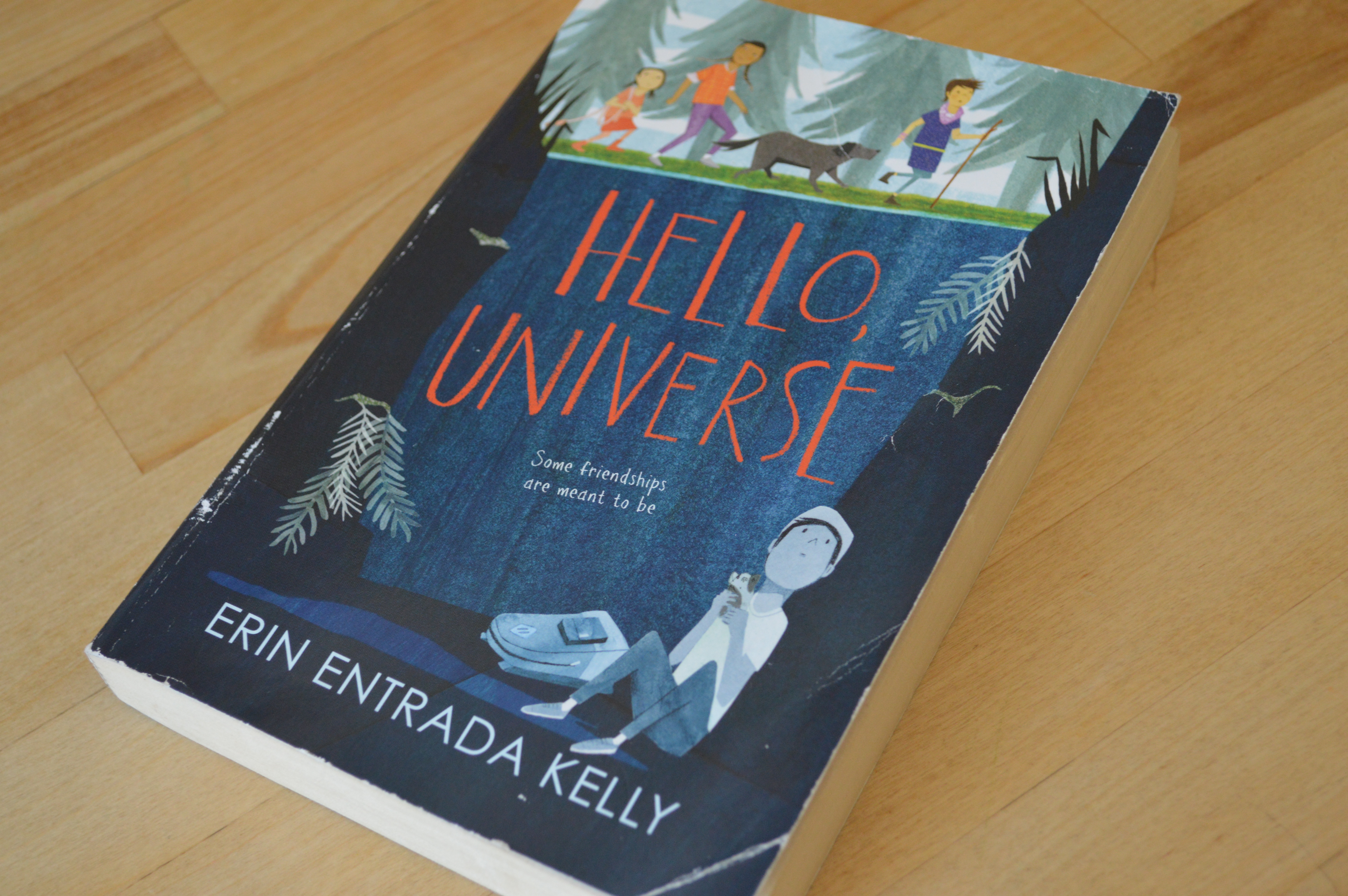
2018 Newbery winner, Hello, Universe by Erin Entrada Kelly weaves five children’s (and a guinea pig’s) stories together, mainly over the course of one day of missed connections, serendipitous meetings, and a little mystery sleuthing to rescue Virgil Salinas and his guinea pig Gulliver from the bottom of an abandoned dry-well.

What was interesting: In some ways it’s a classic middle grade story of children banding together to combat a bully. But it also has a diverse cast of characters (Virgil Salinas is Filipino-American, Kaori and Gen Tanaka are Japanese-American, and Valencia Somerset is hearing-impaired) who each have a distinct spiritual connection (Virgil with the characters of his Grandmother’s stories who protect him from the evil Pah; Kaori with astrology and her own mixture of incense, stone circles and psychic work; and Valencia with a devotion to the French missionary Saint Rene, patron saint of the deaf). Even the bully Chet gets a back story that makes him more sympathetic, although he is still thoroughly vanquished in the end.

What I liked. I really liked how the various stories of each set of characters interwove and came together at the end. One of the great strengths of telling a story using multiple points of view is that you can piece a story together in a unique way, and let the readers in on secrets or details from one character that shed light on what another character is confused by. I think that especially when you are writing for middle schoolers it really helps develop empathy to understand why someone else is doing a particular thing. My favorite example of this is Wonder by R. J. Palacio. But for me, the best part of a story like this is that it can lead to really great endings. (But not always, I think The View from Saturday started out really strong, but didn’t have quite as satisfying of an ending as it could have.)

What were some limitations. When the book opened with a boy and his guinea pig, I immediately wondered if this would be a good book to recommend to my 11 year old godson who loves his guinea pig. But I hesitate in recommending it because I’m not sure that he (or his parents as serious Christians) would really appreciate the astrology of the Tanaka sisters (and to a lesser extent Virgil’s discussions with the spirit girl Ruby or Valencia’s prayers to St. Rene). As an adult reading it, the Tanaka’s ceremonies didn’t bother me; I saw them as a way that they were being creative and interested in their past and exploring spirituality in a pretty harmless way.
But thinking about it with a specific child in mind made me pause. This is not going to be an issue for some kids (or parents), but honestly I do think that it keeps me from freely recommending the book to the younger reading kids in my own life because they, like my godson, aren’t ready for me to hand them a book with astrology in it. (Ironically, I think if their public school assigned it, they probably would be fine reading it because they have the expectation that public school books are going to have a lot of different kinds of religious beliefs and perspectives. But when I recommend a book to a child or tween in my life, I need to feel really good about all the content in book, because they can take it as an endorsement of the things inside it. )

Similarity to other Newbery winners. With its multiple points of view from various middle schoolers it reminded me of Criss Cross and The View from Saturday. The Girl Who Drank the Moon the previous Newbery had a wider range of ages, but also was written from multiple points of view. With its inclusion of a bit of astrology and fortune telling that got to the heart of helping people understand what they really wanted, it reminded me of Missing May and Moon Over Manifest. And with its themes of a middle school misfit trying to figure out school, family, and social arrangements, it reminded me Flora & Ulysses: The Illuminated Adventures and When You Reach Me.

What it teaches me as a writer. I think Erin Entrada Kelly writes a band of children with different strengths and backgrounds coming together to save the day and become friends in the process really well. In my own book, I have a similar number of kids who I hope will have strong and compelling friendships by the end of the book.
Writing friendship is tricky. Often you need some initial misunderstandings and conflict that are overcome, and then through shared hardship, affection, and grace for one another, the characters create a relationship that becomes one of the most enduring qualities of a book. (A classic example of this is how Harry and Ron become friends with Hermione after saving her from the troll in Harry Potter and The Sorcerer’s Stone). In this book, the older four characters are all a bit isolated and want friends as well as have a good number of misunderstandings as they first interact. By the end, three of them have the beginnings of a good friendship, each using their unique strengths to save the day and become more comfortable with and better versions of themselves in the process.

Have you read Hello Universe? What are your favorite multiple point of view novels?
*Note* This post contains Amazon affiliate links, which means if you were to buy a book, I’d get a tiny commission at no cost to you. Thanks for supporting Stories & Thyme!*